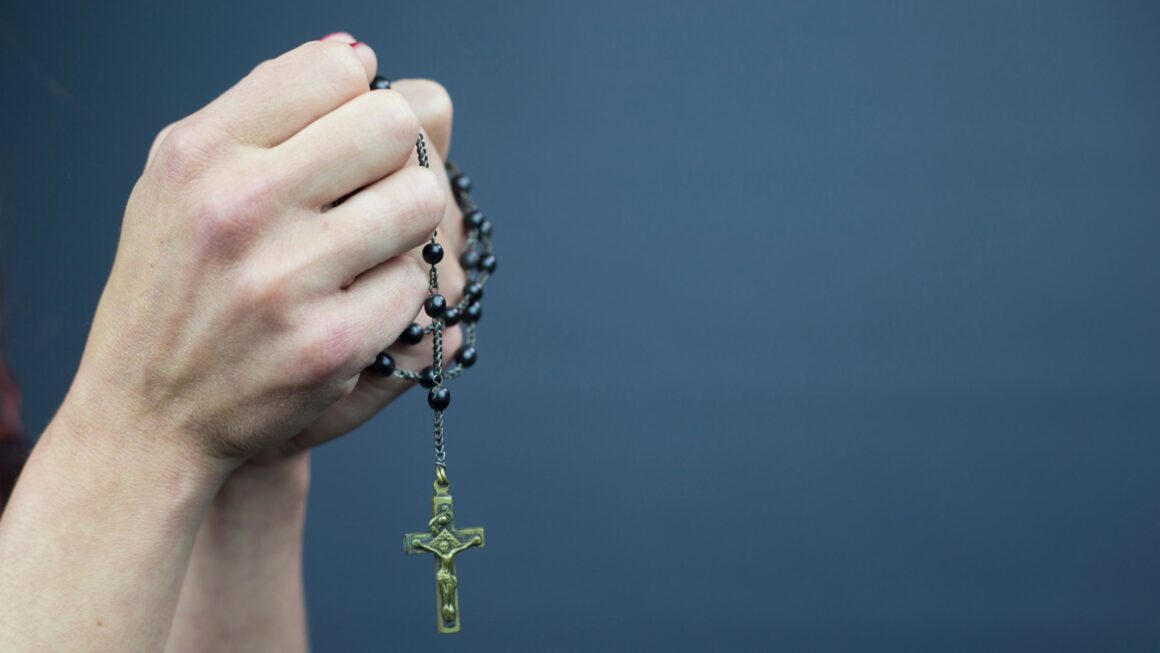About 80,000 people died right away in the Hiroshima attack, and up to 130,000 people, mostly civilians, may have died because of it. About 40,000 people were killed right away in the attack on the port city of Nagasaki, and a third of the city was destroyed.
Four Jesuits were near the center of the Hiroshima bombing, but they lived through the disaster and were not hurt by the radiation that killed thousands of people in the months afterward.
Hugo Lassalle, Hubert Schiffer, Wilhelm Kleinsorge, and Hubert Cieslik, who were all Jesuit priests, were at the rectory of the church of Our Lady of the Assumption, which was one of the few buildings that did not get damaged by the bomb.
Father Cieslik wrote in his diary that the broken windows hurt them a little, but that the atomic energy that was released did not hurt them at all.
The doctors who cared for them afterward told them that the radiation they had been exposed to would cause serious lesions, illness, and death at an earlier age.
The diagnosis never materialized. No diseases ever came up, and in 1976, Father Schiffer went to Philadelphia to tell his story at the Eucharistic Congress. He confirmed that the other Jesuits were still alive and healthy. Over the next few years, they were checked by dozens of doctors more than 200 times, but no radiation was found in their bodies.
Please consider supporting us with a PayPal donation
The four religious people never doubted that God and the Blessed Virgin Mary were keeping them safe. “We were living the message of Fatima and we prayed the Rosary every day,” they said.
What is the Significance of the Rosary in the Survival of the Four Jesuits in Hiroshima?
The Rosary, a form of prayer used particularly in the Catholic Church, played a significant role in the survival of the four Jesuits in Hiroshima. The priests, Hugo Lassalle, Hubert Schiffer, Wilhelm Kleinsorge, and Hubert Cieslik, attributed their survival to their daily recitation of the Rosary and their devotion to the message of Fatima. This event echoes the biblical verse in Psalms 91:7, “A thousand may fall at your side, ten thousand at your right hand, but it will not come near you.” Their survival is seen as a testament to the power of prayer and the protection offered by God and the Blessed Virgin Mary.
How Does the Catholic Church Interpret Miracles Such as the Survival of the Hiroshima Jesuits?
The Catholic Church views miracles as signs from God that confirm the truth of the Christian faith. The survival of the four Jesuits in Hiroshima is seen as a miracle, a divine intervention that protected them from the devastating effects of the atomic bomb. This aligns with the words of Jesus in Mark 10:27, “With man this is impossible, but not with God; all things are possible with God.” The Church sees this event as a testament to the power of faith and the efficacy of prayer, particularly the Rosary.
What is the Message of Fatima and How Did it Influence the Lives of the Hiroshima Jesuits?
The Message of Fatima refers to a series of apparitions of the Virgin Mary to three shepherd children in Fatima, Portugal, in 1917. The message emphasized the importance of prayer (particularly the Rosary), penance, and devotion to the Immaculate Heart of Mary. The four Jesuits in Hiroshima were living the message of Fatima, praying the Rosary daily. This devotion, they believed, was instrumental in their miraculous survival. This reflects the biblical teaching in James 5:16, “The prayer of a righteous person is powerful and effective.”
How Does the Hiroshima Event Reflect the Power of Prayer in Catholic Theology?
In Catholic theology, prayer is seen as a powerful means of communication with God. The survival of the four Jesuits in Hiroshima is seen as a testament to the power of prayer, specifically the Rosary. This aligns with the biblical verse in Matthew 21:22, “And whatever you ask in prayer, you will receive, if you have faith.” Their survival, despite being at the epicenter of the atomic bomb, is seen as a powerful answer to their faithful prayers.
How Does the Catholic Church View the Role of the Virgin Mary in Intercessory Prayer?
The Catholic Church holds a high regard for the Virgin Mary as an intercessor in prayer. The four Jesuits in Hiroshima believed that their survival was due to the intercession of the Blessed Virgin Mary, to whom they prayed the Rosary daily. This belief aligns with the Church’s teaching on Mary’s role as an intercessor, as stated in the Catechism of the Catholic Church (CCC 969), “Therefore the Blessed Virgin is invoked in the Church under the titles of Advocate, Helper, Benefactress, and Mediatrix.”
What is the Significance of the Eucharistic Congress Where Father Schiffer Shared His Story?
The Eucharistic Congress is a gathering of Catholics from around the world to celebrate and understand the Eucharist better. Father Schiffer’s sharing of his survival story at the Eucharistic Congress in Philadelphia in 1976 served to inspire and strengthen the faith of many. It is a testament to the words of Revelation 12:11, “They triumphed over him by the blood of the Lamb and by the word of their testimony.”
How Does the Church Reconcile the Hiroshima Miracle with the Suffering of Other Victims?
The Catholic Church teaches that suffering is a mystery that is part of the human condition due to original sin (CCC 385). While the Church rejoices in miracles like the survival of the Hiroshima Jesuits, it also empathizes with the suffering of other victims. The Church believes that God can bring good out of suffering, as stated in Romans 8:28, “And we know that in all things God works for the good of those who love him, who have been called according to his purpose.”
How Does the Hiroshima Event Reflect the Catholic Understanding of Divine Providence?
The survival of the four Jesuits in Hiroshima is seen as an example of Divine Providence, where God guides and protects His faithful followers. This aligns with the biblical verse in Jeremiah 29:11, “For I know the plans I have for you, declares the LORD, plans for welfare and not for evil, to give you a future and a hope.” The Jesuits’ survival is seen as a manifestation of God’s providential care.
What Role Does Faith Play in the Interpretation of Miraculous Events Like the Hiroshima Survival?
Faith plays a crucial role in interpreting miraculous events in the Catholic Church. The survival of the Hiroshima Jesuits is seen as a miracle due to their faith in God and their devotion to the Rosary. This aligns with Hebrews 11:1, “Now faith is the assurance of things hoped for, the conviction of things not seen.” Their faith allowed them to see God’s hand in their survival.
How Does the Hiroshima Event Contribute to the Catholic Understanding of the Rosary’s Power?
The Hiroshima event contributes significantly to the Catholic understanding of the Rosary’s power. The survival of the four Jesuits, who prayed the Rosary daily, is seen as a testament to the Rosary’s efficacy. This aligns with Pope Pius IX’s statement, “Give me an army saying the Rosary and I will conquer the world.” The event serves to inspire and encourage the faithful to pray the Rosary regularly.
Reference:
CNA, and @cnalive. “The Miracle of Hiroshima – Jesuits Survived the Atomic Bomb Thanks to the Rosary | Catholic News Agency.” The Miracle of Hiroshima – Jesuits survived the atomic bomb thanks to the rosary. Accessed October 24, 2022. https://www.catholicnewsagency.com/news/32445/the-miracle-of-hiroshima-%E2%80%93-jesuits-survived-the-atomic-bomb-thanks-to-the-rosary.




